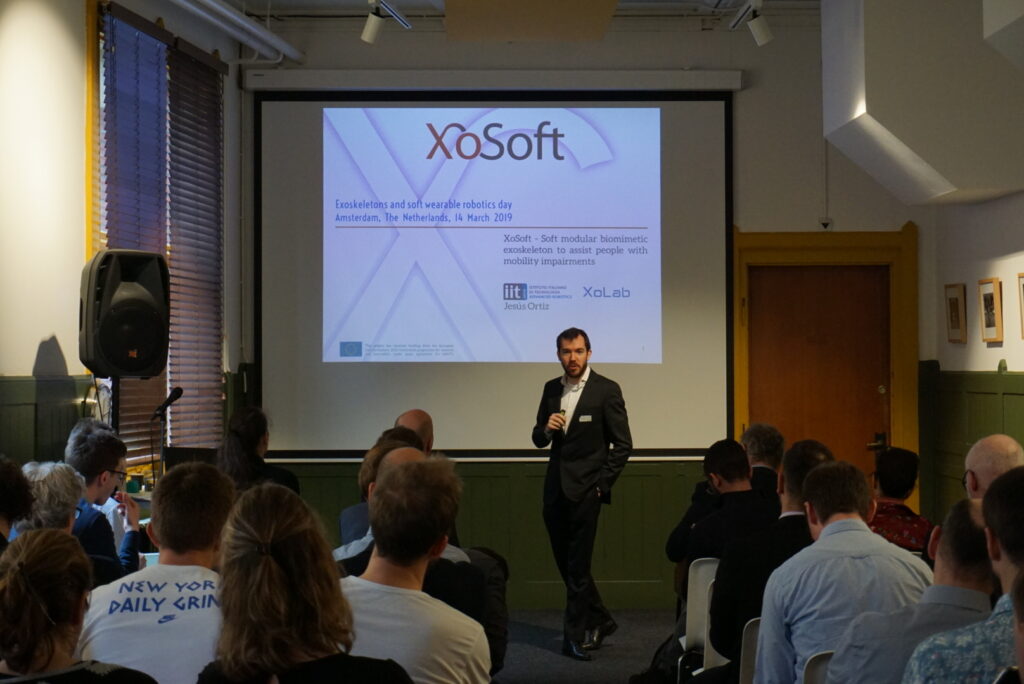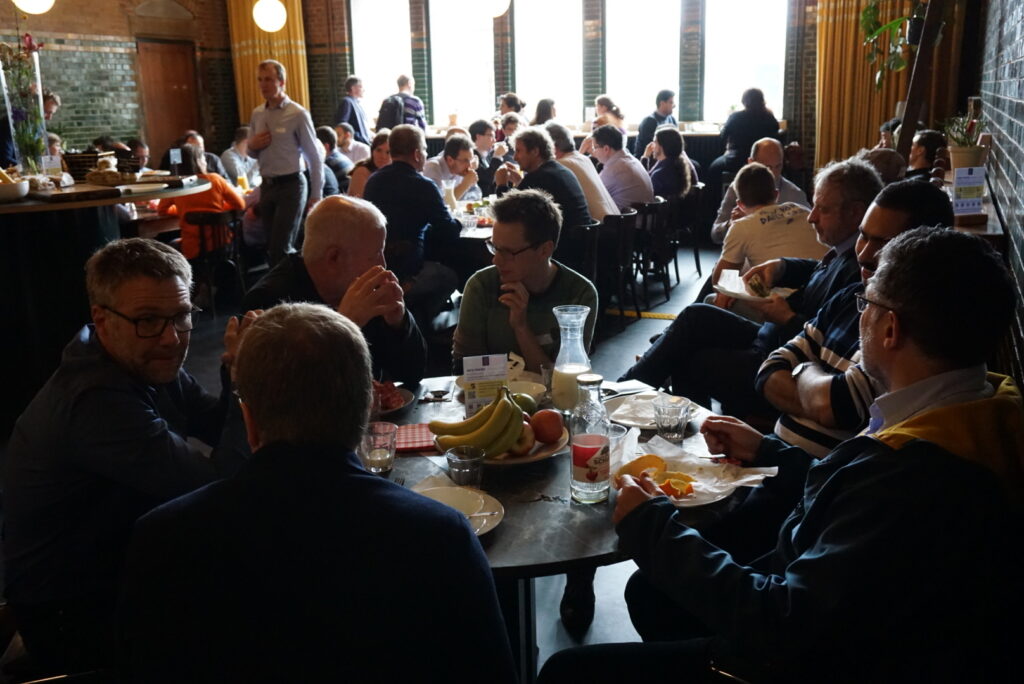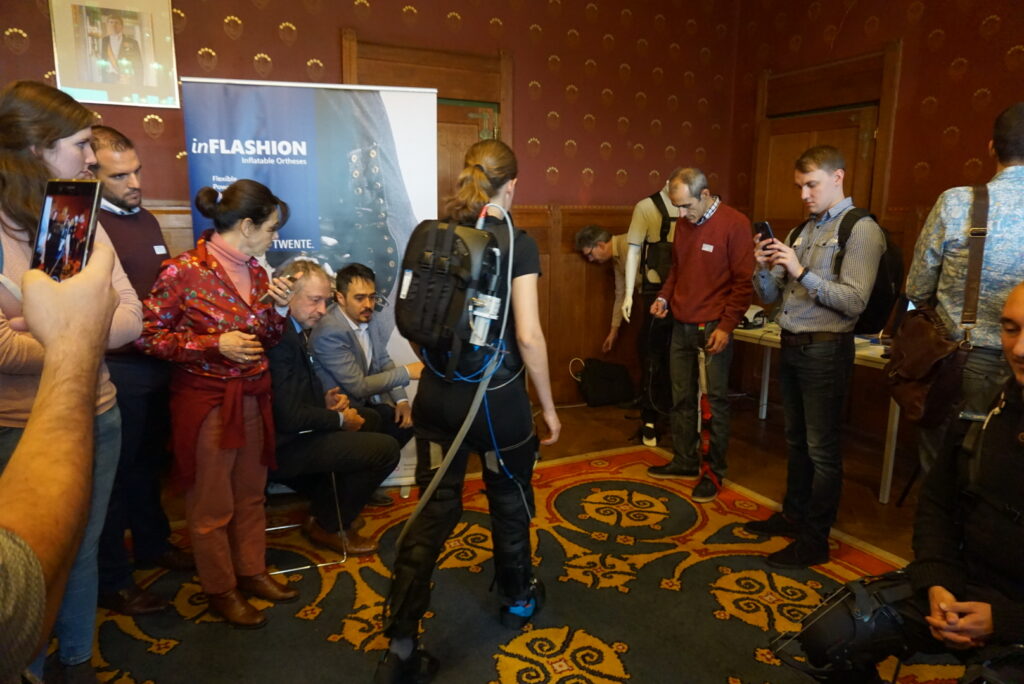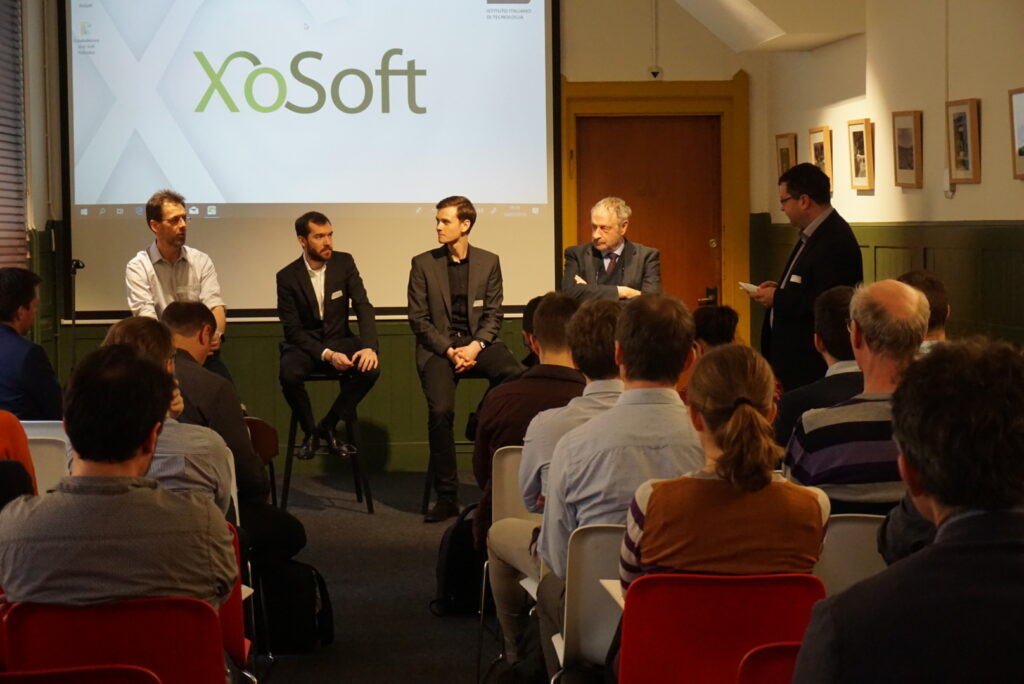What are Cluster Events in the EU Framework Programme H2020?
17th April 2019 at 1:36 pm
Cluster Events organised within EU funded research and innovation projects have become increasingly popular over the past years. This popularity leads back to stakeholders in one area of research having recurring topics and (scientific) challenges. They are events organised by one or several Horizon 2020 consortia focusing on a specific research topic or area, hence the name cluster.
In a nutshell, Cluster Events are a great networking opportunity for an interdisciplinary community and can help boost the dissemination and knowledge exchange for the benefit of all participating parties and their organisations, projects or research. Typically they’re one-day events and are open to scientists, business people and other interested stakeholder groups. Because Cluster Events serve to exchange knowledge they’re usually organised in the second half of a projects duration when milestones have been reached and knowledge has been acquired.
What to expect from a Cluster Event
Cluster events go beyond disseminating your own project results. They offer a platform for innovators in one field to get together to discuss and facilitate the dissemination and exploitation of results beyond the scope of a single project.
Recent examples of Horizon 2020 Cluster Events include the European Perovskite PV Days held in Oxford and the Exoskeletons and Soft Wearable Robotics Cluster Day held in Amsterdam. Both projects were organised and attended by accelopment as part of our role in the projects CHEOPS and XoSoft.
| European Perovskite PV Days | Exoskeletons and Soft Wearable Robotics Day | |
| Duration | 2 days (25th – 26th June 2018) | 1 day (14th March 2019) |
| Topics covered | Stability and characterisation, Maximising Impact and Environmental Issues surrounding PV in Europe | Soft exoskeletons and soft wearable robotics from different perspectives (clinical, technical and from a start-up company) |
| No. of participants | ~30 participants | ~80 participants (65% research/academia, 25% industry, 10% clinical) |
| Keynote speakers | Prof Sir Christopher Llewellyn Smith (former Director-General at CERN) Prof Henry Snaith (University of Oxford, Department of Physics) | Dr Marco Molinari (Director Neurorehabilitation 1 and Spinal Center, IRCCS Fondazione Santa Lucia) Prof Jonathan Rossiter (Professor of Robotics University of Bristol, Dept of Engineering Mathematics and Bristol Robotics Laboratory) Kai Schmidt CTO and Co-Founder MyoSwiss AG |
| Format | Project presentations Discussion based on three themes; Stability and Characterisation, Environmental Issues, and Maximising Impact Workshop sessions | Key note speakers EU funded project pitches Live demonstrations of prototypes Workshop sessions Speakers roundtable |
| Organisers | accelopment AG in close collaboration with the University of Oxford | accelopment AG alongside the XoSoft consortium |
| Sponsors | Part of CHEOPS dissemination activities | accelopment AG, Fondazione Instituto Italiano di Tecnologia, Össur hf |
| Participant feedback | “The EUPPVD and its cluster format truly helped strengthen collaboration across research groups and give European perovskite research a leap forward” Dr. Sylvain Nicolay, CSEM, CHEOPS coordinator | “Great event, actually more useful than many conferences. Having a small community improves a lot the possibility of real networking.” Exoskeletons and Soft Wearable Robotics Day participant |




What does Europe`s research community gain from Cluster Events?
Cluster Events can bring together experts from one specific research area. As seen in the two examples above, these areas would not be considered very broad such as robotics or solar energy but instead focus on a specific topic within a large field of research. And yet Cluster Events manage to attract a large number of participants. In the case of the Exoskeletons and Soft Wearable Robotics Day attendance demand was so high that the registration had to be closed because the event hall wouldn’t fit everyone who had wanted to come.
Having an audience will certainly raise awareness of project results and present exploitation possibilities. Researchers facing issues with their project have the opportunity to discuss these and gather insights to possible solutions and actions from other experts in the same field. These discussions are also a great networking opportunity which will potentially lead to future collaborations for long-term sustainability of project results and open innovation.

Cluster Events give researchers insight into differing viewpoints on their challenges and tangible ways to reach solutions as a community (cluster). The goal is to find innovative and new solutions to the problems they’re facing. The inclusion of entire stakeholder-chains ensures solid and applicable actions with broad support. Additionally cluster events strengthen coherence and make synergies tangible.
How do I organise a Horizon 2020 Cluster Event?
With two recent Cluster Events successfully organised and our many years of experience in project management we feel like we are in a good position to offer up some advice on how to organise a successful Cluster Event:
- Plan ahead: Depending on the size of your event we suggest to start planning 9-12 months ahead. This allows for frequent feedback from your network.
- Find a date: Similar events, such as information days or other Cluster Events, hosted in the same week as your Cluster Event could mean fewer participants make it to your event. Also be aware of public holidays. Make sure you choose a date which is not only suitable for you and your network but also any interested participants.
- Define your target audience: When planning the sessions keep in mind who your target audience is and what your ideal participants would be interested in hearing and seeing
- Plan your costs: Your budget affects the number of potential participants, the type of location and reimbursement structure for speakers (this should be discussed internally before contacting anyone).
- Mix it up: A Cluster Event only consisting of presentations won’t entertain participants. Mix it up with different sessions such as workshops and discussion groups.
- Networking: Allow enough time for participants to talk amongst themselves.
- Communicate: Make use of the all the partner’s contacts. Create a small media package all partners can use to promote the event to their existing networks.
- Keep them interested: Once registered, it is important to keep audiences interested in the event to avoid participants forgetting the event and cancelling on short notice
- Follow-up: Stay in touch with your newly acquired contacts. Send follow-up messages to attendees.
accelopment and H2020 cluster events
In the past year, accelopment has organised two Horizon 2020 Cluster Events as part of our role as dissemination lead in the projects XoSoft and CHEOPS. Is your project or consortia interested in organising a H2020 Cluster Event with other like-minded groups? We are happy to support projects, consortia and other clusters interested in organising a Horizon 2020 Cluster Event. For more information give us a call and request one of our Cluster Event experts.

Joanna Plesniak
Project Manager Communications

Miriam Frances
Project Manager Communications
